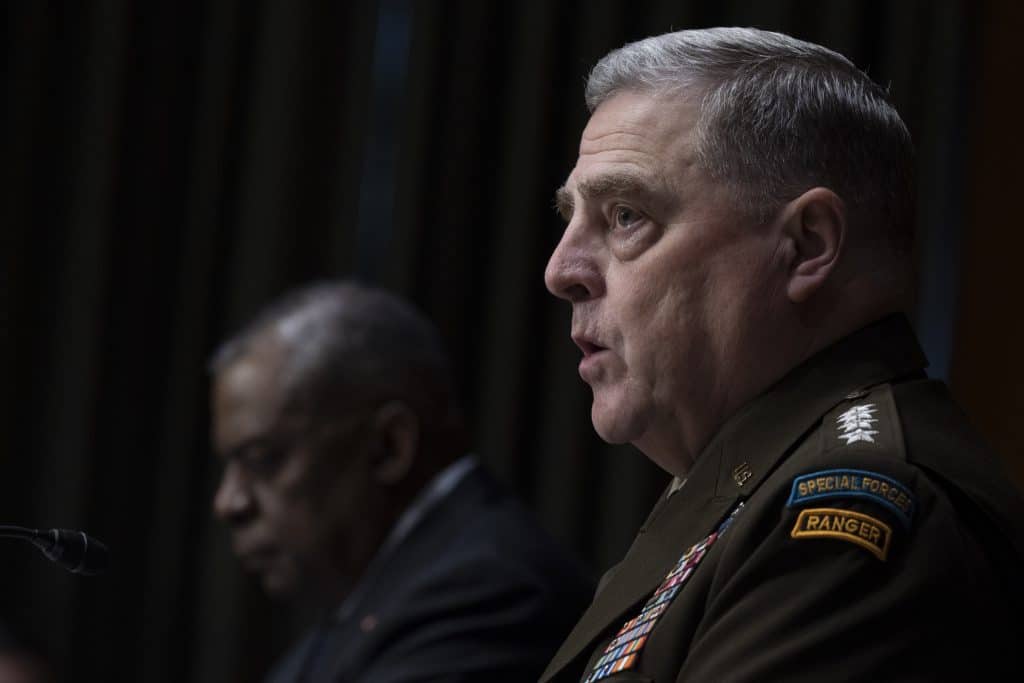Editor’s Note: We at The Havok Journal publish a variety of perspectives and encourage healthy debate through thoughtful rebuttal. Ben’s article below is an excellent example of this in response to another well-written and thoughtful article we published on April 18th by MSG Carson Morris. Anyone wishing to weigh in with their own perspective on this article or any other may send their submissions via email to havokjournal@havokmedia.com.
This article offers a rebuttal argument to MSG Carson Morris’ “The Why Behind the Woke – Leadership in Today’s Army.” I commend MSG Morris for researching this topic and presenting a thoughtful argument. But, unfortunately, I feel it necessary to refute some of his assertions and challenge his source materials for the sake of healthy debate, albeit with a far-less well-cited methodology. Nevertheless, MSG Morris makes many valid points with which I agree. However, my contention is whether the dramatic changes to Army/military culture are necessary or whether the DoD should embrace them with such vigor. I write this article with the utmost respect for my fellow writer and welcome any counter-rebuttal he or any other contributor has to offer.
First, Gen Z undeniably has more significant access to information than generations past, especially regarding political and social issues. This access has also invited, even encouraged, elevated challenges to traditional values and authority in general. However, as I have addressed in previous articles, it exposes them to more sources of manipulation, groupthink, and exploitation by the ignorant and deceptive. Gen Z has fallen prey to confirmation bias and cognitive dissonance through masterfully crafted social engineering and ideological frameworks founded on pseudoscience. The intellectual dishonesty and disingenuousness bombarding them through social media mitigate much of Gen Z’s “critical thinking and creativity,” resulting in blind altruism, victimhood, and misplaced or manufactured outrage. These behaviors and thinking methods create a significant vulnerability in a warfighter, especially during COIN operations where battlelines and combatants are blurred.

Second, discipline is the foundation of any military structure. Service members should be curious about the “whys” of a mission or operation. However, the second paragraph of an OPORD generally spells it out pretty clearly two levels up and one level down. Critical thinking and serious inquiries should remain during the planning phase or the tactical pause when the plan invariably goes awry. Few Gen Zers have the knowledge, experience, or maturity to understand why doctrine exists the way it does and when it is appropriate to deviate from it. I will contend that some doctrine is outdated and does need to adapt to the modern battlefield, but not at the expense of basic warfighting skills or discipline.
Third, as Bud Light and countless other companies have learned over the last year, branding is the key to recruiting customers and employees. It is no different for the military. If the branding does not align with one’s values, they do not purchase a product or join the organization. Looking solely at demographics, the military “brand” predominately attracts white conservative males, and the “woke” ideology and DEI (diversity, equity, and inclusion) agendas do not resonate with them, resulting in a significant recruiting shortfall. Additionally, parents and family members who previously would have encouraged Gen Zers to join are now actively discouraging it for the same reasons. This salty platoon sergeant is one of them. Similarly, the Gen Z target audience of DoD-promoted drag shows and “influencers” will not encourage them to join and only serves to drive away those willing, wanting, and able. The DoD should refrain from sacrificing the silent majority while catering to a vocal minority.
Fourth, I grew up in a meritocracy where all privates were equally worthless and had to earn our stripes and specialty schools/assignments. My leadership did not afford anyone special treatment because of their gender, race, or sexual orientation. Everyone worked hard for what they wanted and earned everything they received. EO and SHARP policies and directives ensured that everyone received equal treatment. No one was subject to discrimination or victimization in promotion or punishment; everyone was green and deserving of respect. However, DEI has created a toxic environment where merit is meaningless, and bigotry is encouraged at the highest echelons. Scott Faith also discussed this issue in an article he penned a few years ago and The Havok Journal recently reposted. Unfortunately, this perception is a reality and undermines military readiness, recruiting/retention, cohesiveness, and morale.
Fifth, the military is no longer apolitical. The only political circles the DoD would swim in before the 2020 election was related to foreign policy and national defense, and it largely would not interject itself into social issues. Chairman of the Joint Chiefs of Staff General Mark Milley completely obliterated that tradition during his congressional testimony on June 23, 2021, when he alienated roughly three-quarters of his subordinates. General Milley testified that he read a book penned by black supremacist Ibram Kendi on critical race theory (CRT) to understand “white rage.” This insincere argument was akin to reading Marx or Mao to understand capitalism. If he genuinely wanted to understand “white rage,” he should have read “The Turner Diaries.” Again, this single statement from the top did irreparable damage to the recruiting, retention, and morale of the military and did nothing to encourage Gen Z to join.

Finally, there is no argument that diversity is a strength, but not when forced upon an organization with arbitrary quotas without merit or ability to support it. For example, JFK’s ExComm during the Cuban Missile Crisis provided enough diverse opinions and perspectives to avert a nuclear exchange with the Soviet Union. More to the point, it is a safe assumption that no one wants a doctor operating on them or a commercial airline pilot flying them based solely on their gender, race, or orientation. Everyone wants someone competent and qualified behind the scalpel or stick; the same is true of an SF ODA, artillery battery, or line infantry platoon. Anyone who has served in the military that there is plenty of diversity in perspectives, backgrounds, and demographics and is plenty inclusive and equitable. Politicians, activists, and bureaucrats do not need to “fix it ‘til it’s broke” to accommodate Gen Z’s dubiously accurate perception of the world or satisfy hollow quotas.
In closing, I respect MSG Morris’s work in composing this piece, even if I disagree with most of his findings and use of subjective unscholarly sources [sorry, I am an academic snob regarding the latter]. Gen Z has a wealth of information at their fingertips but does not yet have the knowledge, experience, or maturity to think critically about the information available to them legitimately. Additionally, the military has a brand, and deviating from it as drastically as it has over the last few years has hurt its image, which in turn has negatively impacted recruiting, retention, readiness, and morale. Therefore, it is up to the military’s leadership to encourage Gen Z and future generations to join the Armed Services, but not at the expense of quality and merit or by alienating most of the force with historical fallacies, pseudoscience, or bigotry. I will conclude with a saying I heard all too often throughout my career: “The needs of the Army are rarely in line with the wants of the soldier.”
_____________________________
Ben Varlese is a former U.S. Army Mountain Infantry Platoon Sergeant and served in domestic and overseas roles from 2001-2018, including, from 2003-2005, as a sniper section leader. Besides his military service, Ben worked on the U.S. Ambassador to Iraq’s protective security detail in various roles, and since 2018, he has also provided security consulting services for public and private sectors, including tactical training, physical and information security, executive protection, protective intelligence, risk management, insider threat mitigation, and anti-terrorism. He earned a B.A. and an M.A. in Intelligence Studies from American Military University, a graduate certificate in Cyber Security from Colorado State University, and is currently in his second year of AMU’s Doctorate of Global Security program.
As the Voice of the Veteran Community, The Havok Journal seeks to publish a variety of perspectives on a number of sensitive subjects. Unless specifically noted otherwise, nothing we publish is an official point of view of The Havok Journal or any part of the U.S. government.
Buy Me A Coffee
The Havok Journal seeks to serve as a voice of the Veteran and First Responder communities through a focus on current affairs and articles of interest to the public in general, and the veteran community in particular. We strive to offer timely, current, and informative content, with the occasional piece focused on entertainment. We are continually expanding and striving to improve the readers’ experience.
© 2024 The Havok Journal
The Havok Journal welcomes re-posting of our original content as long as it is done in compliance with our Terms of Use.



